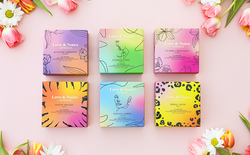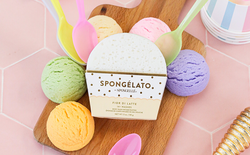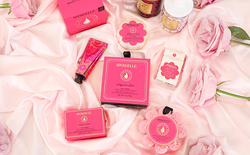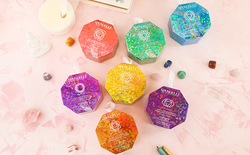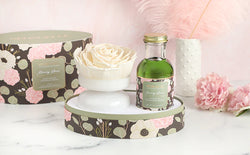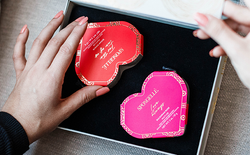If you love skincare, you've probably tried all kinds of products. However, not all ingredients in skincare are created equal. You have to find out what works for your skin type.
When you have dry skin, you may reach for products with hyaluronic acid, aloe vera, or shea butter. While all those ingredients can be helpful, they aren't the only ingredients that can hydrate your skin. Some ingredients aren't as mainstream but are still equally beneficial, if not better, at providing nutrients and moisture to the skin. Kukui nut oil is one of those fantastic low-key ingredients.
Its benefits go beyond the skin. We will go over everything you need to know about kukui nut oil. You'll discover where it comes from and what it can do for you.
What Is Kukui Nut Oil?
The kukui tree is the state tree of Hawaii and produces large nuts. Polynesians brought seeds of the tree to Hawaii. For centuries, they pressed the oil out of the nuts for use in religious ceremonies, paintings, and candles. They also use the kukui nuts to make many traditional dishes.
Hawaiians use almost every part of the tree, including the leaves, bark, flowers, and sap. The flowers are often used to make the leis that have become synonymous with the Hawaiian islands. However, kukui nut oil has become famous globally for its benefits to hair, skin, and the immune system.
The oil contains a lot of poly and monounsaturated fats, linoleic acid, vitamins C, D, and E, and other antioxidants. These ingredients can do wonders for your body. The oil is super lightweight, which makes it ideal for beauty products. Below are many different benefits of using kukui nut oil.
Kukui Nut Oil Can Moisturize Skin
Kukui nut oil can work wonders on dry skin, though it can be beneficial for all skin types. It contains anti-inflammatory and antioxidant-rich components without feeling greasy or heavy. The oil has linoleic acid and oleic fatty acids, which can repair the skin's natural barrier.
Keeping the outer layer of your skin healthy is key to your overall health. It protects you from infectious agents, chemicals, allergens, and toxins. When your skin barrier is damaged, it may be dry, itchy, and red. Replenishing the skin with nut oils like kukui, argan, coconut, macadamia, and jojoba can help repair the barrier.
It also helps your skin retain water, which keeps your body hydrated. You may steer clear of oils if you have acne-prone or sensitive skin, but since this oil is non-comedogenic and lightweight, it is unlikely to clog your pores. Always consult with a dermatologist before introducing something new into your skincare routine, even products made with natural and beneficial ingredients.
If you need a moisturizer, try Spongellé's Coconut Verbena Hand Cream. The hydrating formula is enriched with hyaluronic acid, shea butter, argan, and macadamia seed oils to moisturize and soothe your dry skin for hours.
Kukui Nut Oil May Reduce Wrinkles
No one wants to get wrinkles and fine lines, but it's a natural part of aging. As you get older, you lose elastin and collagen in your skin. These proteins are what keep your skin looking smooth and plump. Once they break down, wrinkles begin to form.
Kukui nut oil is high in antioxidants which may be able to slow down signs of aging. Antioxidants can help boost collagen production and can also help your skin shed dead skin cells, which will clear the way for new cells. There is also some evidence that applying kukui oil every day can help you prevent stretch marks or minimize their appearance.
To help with stretch marks and hydration, you can also use lotions with other ingredients like shea butter. Try Spongellé's Honey Blossom Body Lotion, which has shea butter along with jojoba oil, and vitamin E, for a rich emollient formula that will provide your skin with just what it needs.
Kukui Nut Oil May Strengthen Hair
Another traditional use for kukui oil is as a hair mask. The fatty acids in the oil deliver critical nutrients to your hair. You can mix the oil in with your shampoo or conditioner or massage it right into the scalp and ends of your hair.
The oil can help strengthen your hair and prevent breakage. The oleic and linoleic acids in the oil help your hair retain moisture. The kukui nut oil can also help soothe an itchy scalp and reduce dandruff.
Dandruff is typically caused by dryness, and the vitamins and antioxidants in the oil will replenish the skin on your scalp. After several uses, you may notice less flaking. Once you restore your scalp health, you may even notice more hair growth.
The hair follicles can become full of sebum, dead skin, and dandruff. When they are blocked up, it can impact the amount of hair that grows and the quality of your hair. If your scalp is irritated or not in the best health, kukui nut oil will help soothe your scalp.
You can also try weekly exfoliation to stimulate hair growth. There are exfoliating brushes and scalp toners available to help remove the buildup that hinders hair growth.
Kukui Nut Oil May Help Heal Wounds
One of the ancient uses for kukui nut oil was to help to speed up the healing process. It was often placed on bruises, scrapes, cuts, and sunburns. Ancient Hawaiians also used the oil to keep the injured area from becoming infected.
Kukui oil has properties that hinder bacterial growth, which is why it's popular for preventing infection. The oil lipids offer a protective layer to the injury, which is believed to aid in natural healing. Kukui nut oil is still sought out today for these purposes.
However, the oil hasn't been clinically tested, and some doctors may advise against putting it near open wounds. You especially want to be cautious if you're using oil that comes from a manufacturer. You don't know if they are keeping up the same product standards as the Hawaiians who are more familiar with kukui oil. The oil may end up having the opposite effect, and you could end up getting an infection.
Kukui Nut Oil May Help Soothe Muscles
After you workout or do something strenuous on the body, you might experience sore muscles. When you work out, you actually damage the muscles through little tears. The damage causes inflammation in the molecules and triggers your immune system to repair the muscles. As the muscles are repaired, they get bigger and stronger.
You can try relieving muscle soreness through foam rolling or traditional pain relievers. However, there are a number of different oils that may also help with inflammation and ease muscle pain. One of the most traditional uses for kukui oil is to reduce inflammation.
The oil is massaged over muscles and soaks into the skin. The fatty acids have anti-inflammatory properties, which may help with swelling. Once the inflammation goes down, the healing begins, and new fibers grow around the muscle.
Kukui Nut Oil May Boost the Immune System
Your immune system is your body's defense against diseases, viruses, and anything that could be harmful. However, sometimes germs are able to invade and make you sick. However, there are ways to help boost your immune system to make it stronger.
One way to make your immune system stronger is by eating a nutritious diet full of fruits, vegetables, and healthy fats.
Kukui oil is full of immune-boosting potential with high vitamin E and C levels. Your body constantly comes in contact with pathogens and things that can compromise your immune system. Using kukui oil on your hands and face alone may help give you a little boost. However, you can also consume it when it’s cooked to help give your immune system a little more help.
Possible Side Effects of Kukui Nut Oil
Kukui oil may not be an ideal match for everyone, and some people have reported side effects when using this ingredient. People have experienced skin irritation and upset stomachs when using a lot of kukui oil.
While kukui oil is nutrient-dense, it also is susceptible to heat. If the oil has expired or has been exposed to high heat and you ingest it, it can lead to stomach issues. You may feel nausea or experience diarrhea and other gastrointestinal problems. It's not dangerous but can be unpleasant.
Another potential side effect is inflammation from an allergic reaction. People can be sensitive to the kukui nut tree or have an allergy to nuts. Test the oil on a small patch of skin before applying it all over your body. Wait a few minutes. If you don't experience redness, irritation, or itchiness, you should be safe to continue using it.
You can also speak to a doctor before use if you have a lot of skin sensitivities or allergies.
Give Kukui Oil a Try
Kukui oil has many potential health benefits. It can hydrate your skin and replenish dry or damaged hair. It may also be able to boost your immune system, help soothe sore muscles, and assist in the healing of minor wounds.
More research is still needed to back up most of these benefits, but it's safe to try for most people. If you want to try other hydrating ingredients such as vitamin E, shea butter, argan, and jojoba oil in a cream or lotion, Spongellé has many great options to introduce to your routine.
Fontes:
